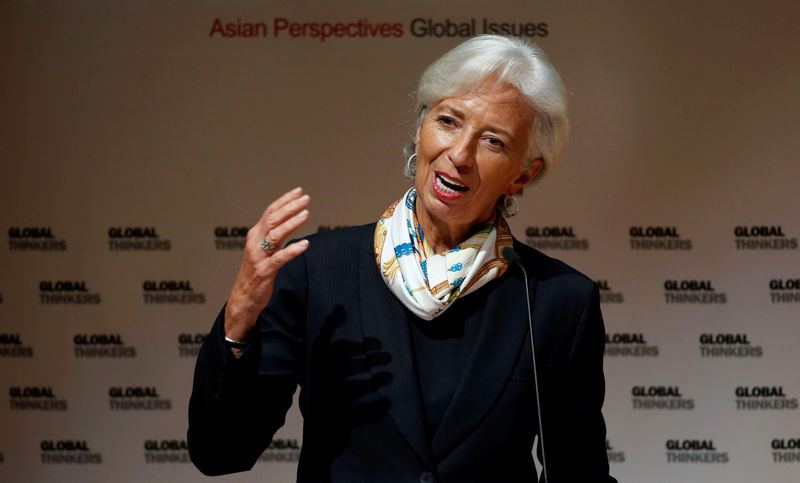(Bloomberg) -- Explore what’s moving the global economy in the new season of the Stephanomics podcast. Subscribe via Pocket Cast or iTunes.
Christine Lagarde said mending the split among her Governing Council colleagues will be her first order of business after taking over as European Central Bank president, and a strategy review could be a good way to do so.
Speaking in an interview with German Der Spiegel magazine published Friday, Lagarde said it was time to turn the page following the acrimony that broke out over the recent stimulus package.
“I’m always looking for the common ground to bring the different opinions together,” Lagarde, who starts her eight-year term as president on Nov. 1, told the German magazine. “We should now concentrate on how we can find common ground again in the future.”
The idea to have a deeper rethink of the ECB’s policies including the definition of its inflation goal is already gathering momentum. Estonian governor Madis Muller said the discussion needs to open “within quarters.” Dutch governor Klaas Knot endorsed the review last week by proposing a symmetric band around the ECB’s inflation aim, currently set at just under 2%.
Speaking in an interview with Bloomberg, his Belgian colleague Pierre Wunsch said the ECB may at one point have to consider an escape clause from its pledge to keep interest rates ultra-low if the negative effects of loose policy start to bite.
Without Bias
Lagarde said that the ECB “will examine the benefits and risks of the various options without bias,” and her goal was to “get the members of the central-bank council involved at an early stage.”
Lagarde’s outreach follows a public feud among officials that sparked allegations that outgoing President Mario Draghi steamrolled the decision in September to restart quantitative easing against the Governing Council’s will. About a third of policy makers opposed the new round of bond-buying and some have since signaled they would be reluctant to cut rates further below zero.
Muller, who was among the opponents of QE in September, signaled he was looking forward to the review. “Madame Lagarde is well-placed to take this forward,” he told a panel in Warsaw on Friday.
Improving Relations
Asked about the row at his last press conference, Draghi said Thursday he doubted it would affect how he will be remembered as president. Lithuanian governor Vitas Vasiliauskas said on Friday the divergence of views makes institutions stronger, but added that the communication since the September meeting wasn’t “perfect and it impacted the signaling effect of our policies.”
Lagarde’s comments suggest she’ll also aim to improve relations with Europe’s largest economy, where the ECB has been vilified for hurting savers and contributing to a rise of the far-right. Draghi has often sparred over policy with Bundesbank President Jens Weidmann.
“I consider it one of my urgent tasks to make the euro, the central bank and its monetary policy available to a wider public,” said the future ECB president. “Mario Draghi had his own style, I’ll have my style.”
